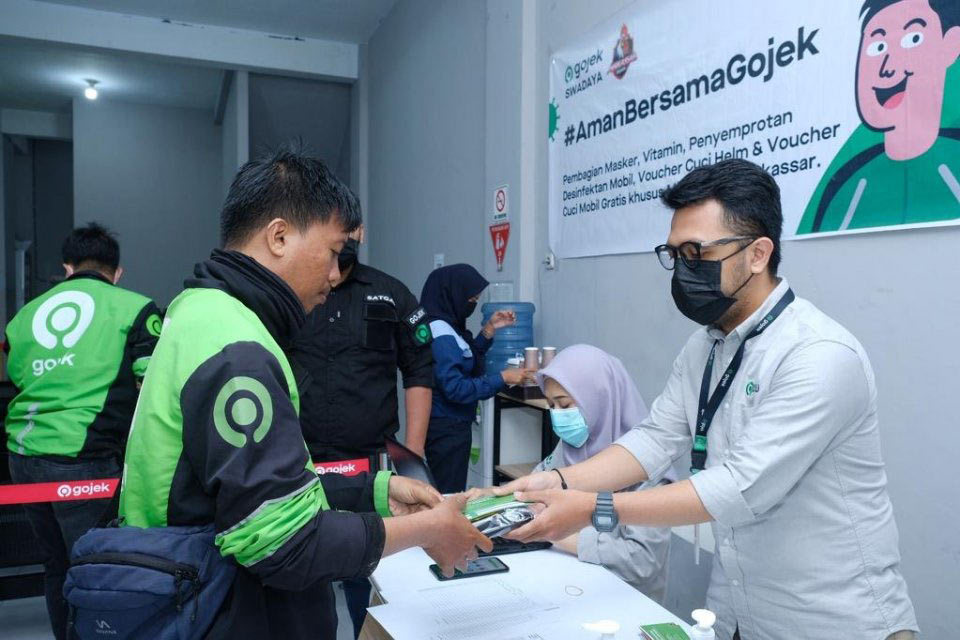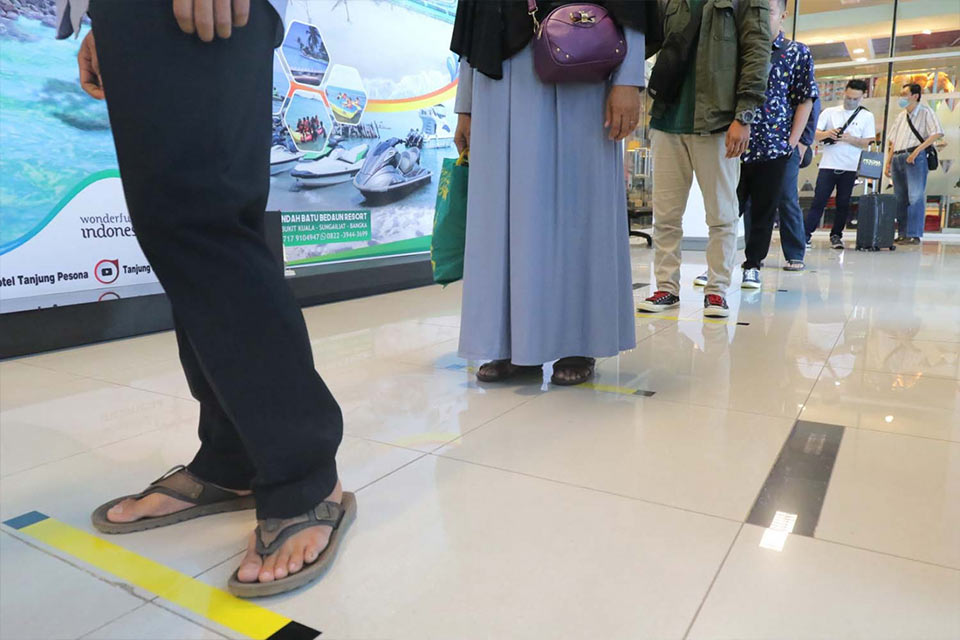The coronavirus pandemic forces many people to stay indoors, and to rely more on technology.
Many restaurants in many countries have considered dining in as less safe, and dining out a better choice. As a result, ordering delivery has become a viable option.
For restaurants, food delivery apps are the saviors.
With less people gathering, less people are dining in. Food delivery apps simply provide the means where businesses can run, and customers remain happy.
At the same time, food delivery apps are also benefiting largely. Keeping up with the surge of orders, many have responded by eliminating fees, provide discounts, and more.
Food delivery apps are focusing on meeting the growing demand of consumers stuck in their homes and tired of eating the same thing, or struggling to refill their fridges because of the empty shelves in grocery stores due to panic buying, or because of the difficulties in getting outside.
In Indonesia, the major players in the app-based food delivery, are Gojek’s Gofood and Grab’s Grabfood.

The two have been the choice for many Indonesians who depend on food delivery services even at the best of times. And during the coronavirus pandemic, their services are more than welcome, as they help support the ongoing social distancing movement to fight the virus.
This is suggestion that had also been encouraged by President Joko Widodo himself.
Customers may write an additional note to the driver to do contactless delivery, in which the driver will simply drop off their meal at a designated location, such as at the front door for those living in houses or kosan (boarding house), or at the reception area in an apartment lobby.
And for convenience, payments can be done cashless.
This way, consumers and the drivers aren't required to meet in person for the transaction.
In a written statement, the Indonesian decacorn startup Gojek said that is providing its partner drivers with face masks and hand sanitizers at driver operations offices, shelters, and other community stations. In addition, partnered food merchants are also given education materials on hygienic business practices, such as checking the temperature of all employees on a daily basis.
Grab also wrote a similar statement, by also saying that its policies include a 2-meter safe distance between drivers and customers, and spraying disinfectants regularly on delivery bags and cooking stations at its GrabKitchen kitchen service.
Read: As Coronavirus Continues, Gojek Bosses Donate 25% Of Their Salaries For Drivers And Partners

With demand rising. food delivery companies are benefiting, mostly due to the fact that ride-hailing business is almost at all time low. But this moment is may also be a blessing in disguise.
U.S.-based services such as Instacart, Uber Eats, Seamless and DoorDash are all expecting huge surges in delivery orders. Amazon is even hiring hundreds of extra workers to keep up with the demand. But with social distancing and governments urging people to stay indoors, these companies are experiencing increased difficulties in finding more delivery drivers and other staff.
This also raises an ethical dilemma: is it morally acceptable to ask others – normally in less secure jobs with worse pay – to take on the risk for delivering food and groceries even if they don’t want to?
First of all, the COVID-19 virus is borne by droplets transmitted through, for example, coughing and sneezing. And second, there is little evidence to support that the virus can be transmitted through food or food packaging, according to the Centers for Disease Control and Prevention and the Food and Drug Administration.
But since viruses are organisms too small to see with the naked eyes, there is saying how the virus will infect its next victim.
This makes the risk much higher for delivery workers who work outdoors to travel miles to get to their destinations, and interact with people. There are also chances that the drivers make deliveries to families who are in quarantine because they’ve tested positive for the COVID-19.
During a pandemic like this, there are always risks. But since there are also ways to mitigate those risks, everyone seems to be betting on them.